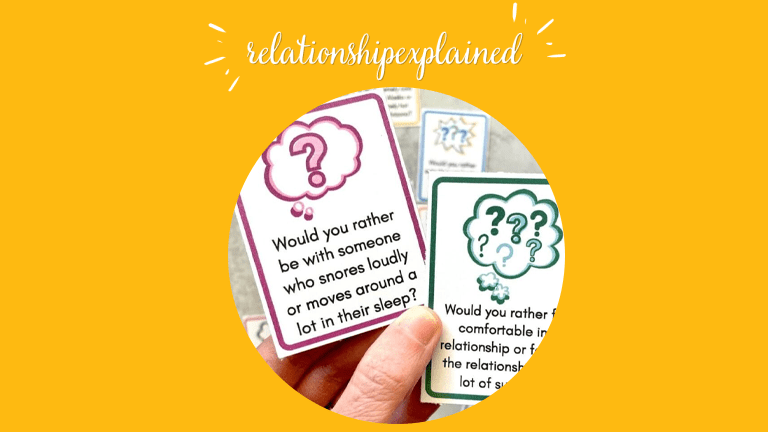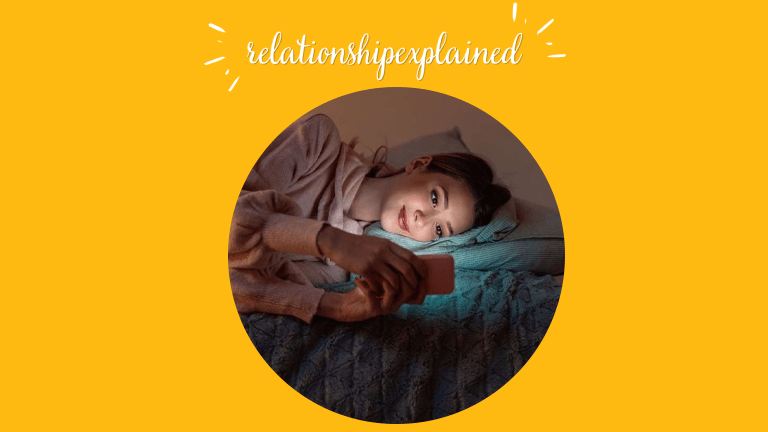He Acts Different When We Are Alone
When he acts differently when alone with you, it may indicate a change in comfort level or underlying issues. Openly communicate your observations, express your feelings, and seek understanding through empathetic conversations to address the situation and strengthen your connection.
Ladies, have you ever noticed your guy act differently when it's just the two of you?
It can leave you wondering what might be going on and questioning your relationship dynamics. But fear not! In this insightful article, we delve deep into the reasons behind this intriguing change of behavior, providing you with valuable understanding and guidance.
Gain insights into the underlying factors that influence his altered behavior and discover practical tips on how to navigate this unique situation. Whether it's a shift in comfort levels, past experiences, or the desire to create a stronger emotional connection, we've got you covered.
Get ready to unlock the secrets and empower yourself with knowledge to create a harmonious and fulfilling relationship. Together, let's explore why he may be a bit distant towards you when around friends but acts differently when you're alone.
10 Reasons He Acts Differently When Alone With You
1. Comfort And Vulnerability
Despite any reservations stemming from low self-esteem or a previous relationship, he feels safe enough to let his guard down and be vulnerable with you. In these private moments, he can express his true thoughts, fears, and desires without fear of judgment or rejection.
Additionally, the absence of external pressures and expectations creates an atmosphere where he can fully embrace his authentic self, knowing that you accept him for who he is. By nurturing his comfort and vulnerability, you create a space that counteracts any lingering insecurities from past relationship challenges.
2. Authenticity
When a guy acts differently, finding excuses or acting aloof, it may indicate his struggle to navigate societal expectations. However, when you spend time together in a safe and supportive environment, it may encourage self-compassion and allow him to be his authentic self. This fosters a stronger bond, allowing you to connect on a deeper, more genuine level and build a relationship based on authenticity and understanding.
3. Intimacy And Connection
When you're alone together for a few hours, the distractions of social media posts, other women, or other guys fade away. Instead, you can focus solely on each other and gain a different perspective. This provides time to engage in deeper conversations, create shared experiences, and embrace vulnerability.
4. Personal Freedom
In a group setting, a guy may feel uncomfortable or restrained by societal expectations. However, when it's just the two of you, he shows a genuine interest in being with you. This intimate setting allows him the freedom to be himself without judgment. He can openly talk, express his thoughts, and embrace his individuality.
This sense of personal freedom creates an authentic and liberating dynamic, fostering a deeper connection and strengthening the authenticity of your relationship.
5. Shared Interests
When alone together, a guy who shows interest will engage in shared activities that hold significance for both of you. Away from distractions or excuses, you can explore hobbies, passions, and quality time that strengthen your bond. These shared experiences create unique memories and foster a sense of unity, enriching your connection and bringing deeper meaning to your lives together.
Embrace these moments of togetherness and build a foundation of shared interests and experiences that enhance your relationship.
6. Testing Boundaries
When alone together, a guy may feel more at ease to explore new dimensions of your relationship. This can involve having deeper conversations, trying new experiences, or venturing into more adventurous territories. Without the influence of friends or outside opinions, he can feel secure pushing the boundaries, fostering growth and understanding.
Embrace these signs of his willingness to step out of his comfort zone and be open to the possibilities of a deeper connection. Encourage this exploration and create a safe space where he can express himself freely without being afraid of judgment.
7. Playfulness And Humor
In private, a guy's playful and humorous side comes to life. He feels comfortable being his lighthearted self, engaging in inside jokes, playful banter, and shared laughter with the girl he's talking to. These moments of joy and fun strengthen the bond, creating cherished memories that matter in your relationship.
8. Emotional Release
When alone, he finds solace in releasing pent-up emotions that often go unnoticed in his daily life. Free from external pressures, he confides in you, a trusted friend and woman, sharing thoughts, concerns, and feelings without reservation.
Your support creates a haven where he can delve into his emotions, finding comfort and understanding. In your presence, he discovers the space to explore and process his feelings more deeply, embracing the emotional dimensions of life that often remain unseen.
9. Shared Secrets
Within the privacy of your relationship, he'll feel at ease revealing personal secrets, fears, and aspirations. Trust enables a deeper level of vulnerability and openness. He recognizes that he can confide in you without fear of judgment or his secrets going awry. Sharing intimate details strengthens the emotional bond, fostering mutual understanding and creating a safe space for him to be his true, sometimes shy or hurt, self in your presence.
10. Unfiltered Affection
In the presence of only one person, he finds the courage to admit his love and affection more openly. Suddenly, it becomes evident that his feelings are genuine. He can't help but express his emotions without reservation. From cuddling to holding hands and engaging in intimate moments, these actions strengthen your emotional and physical connection. This unfiltered display of affection deepens the sense of closeness and reinforces the bond you both share.
How To Respond To The Situation
1. Communicate Openly
Initiate a heartfelt and open conversation with him about the observed change in his behavior when you are alone together. Approach the topic with empathy and understanding, expressing your genuine curiosity and desire to comprehend his perspective better. Encourage him to share his thoughts and feelings without fear of judgment, fostering an environment of open dialogue and mutual respect.
Open communication builds trust, respect, and understanding, nurturing a deeper emotional connection. It empowers both partners to notice and address issues, share vulnerabilities, and collaboratively strengthen the relationship. Even the smallest things can be resolved through open dialogue, preventing misunderstandings from taking hold and keeping the connection warm and thriving.
2. Express Your Feelings
Share your own emotions and concerns regarding the situation. Be vulnerable and honest about how his altered behavior in social circles makes you feel, whether it's confusion, insecurity, or disconnection. By expressing your feelings in a non-confrontational manner, you create an opportunity for him to empathize with your perspective and gain a deeper understanding of the impact of his behavior.
Keep an open mind and refrain from becoming defensive when expressing your feelings. Remember that the goal is to foster understanding and find solutions together. Avoid attacking or criticizing him, as it can hinder productive communication. Instead, focus on sharing your own emotions and experiences in a non-threatening manner.
3. Seek Understanding
Ask him to share his perspective and motivations behind his changed behavior. Be genuinely interested in understanding his point of view without assuming or making accusations. Listen attentively and empathetically to his explanations, allowing him the space to express himself freely. This approach can foster a sense of safety and encourage him to open up about his thoughts, fears, or underlying reasons for acting differently when alone with you.
Encourage him to openly share his thoughts, feelings, and experiences in each moment. Use open-ended questions to spark deeper insights and reflections. Embrace the opportunity to wonder about his motivations and gain a clearer understanding of the obvious and subtle aspects. Accept his perspectives without worry or hesitation, creating a safe space for open communication and connection.
4. Validate His Feelings
When his behavior changes, it's natural to assume something may be amiss. Instead of jumping to conclusions or imagining the worst, take a moment to hang back and consider other possible reasons. Understand that what may seem abnormal could have a perfectly normal explanation.
Approach the situation with empathy and open communication to understand what may have happened. By approaching it this way, you create a supportive environment where he feels comfortable sharing his experiences, leading to a stronger emotional connection and a deeper understanding between you both.
5. Reflect On Your Own Behavior
Take time to reflect on your own behavior and actions within the relationship. Consider whether any factors might contribute to his altered behavior. Reflect on your communication style, expectations, and the overall dynamics of your relationship. Self-reflection can help you identify areas where improvements can be made and allow for a more balanced and fulfilling connection.
Develop self-awareness by examining how you contribute to the dynamics of the relationship. Reflect on your own attitudes, behaviors, and communication patterns. Consider whether your actions may unintentionally influence his behavior when alone together.
6. Practice Patience And Empathy
Practice patience and empathy by cultivating a deep understanding of your partner's unique journey. Recognize that individuals go through their own personal growth and face various challenges along the way. Be patient as they navigate their emotions and allow them the space to process their feelings at their own pace.
Show empathy by putting yourself in their shoes and genuinely attempting to understand their perspective. Seek to comprehend the factors that may be contributing to their changed behavior when alone with you. By empathizing with their experiences, you create a supportive and non-judgmental environment that encourages open communication.
7. Focus On Shared Experiences
Engage in activities and experiences that promote bonding and strengthen your connection as a couple. Plan special date nights or outings where you can create positive shared memories. By actively investing in shared experiences, you foster a deeper sense of intimacy and trust, creating a space where both of you feel more at ease when alone.
Identify common hobbies or interests that you both enjoy and engage in them together. It could be anything from cooking together, hiking, painting, or even dancing.
8. Foster A Sense of Security
Reassure him of your commitment and support. Emphasize that your relationship is a safe space where he can be himself without fear of judgment or rejection. Try to demonstrate your love and loyalty through words and actions, reassuring him that his vulnerabilities are accepted and valued. Building trust and emotional security can alleviate anxieties contributing to his altered behavior.
Act in ways that promote trust and reassure him. Be open and transparent in your communication, follow through on your commitments, and respect his boundaries. You foster a sense of security within the relationship by consistently demonstrating trustworthiness.
9. Respect Boundaries
Recognize and respect his need for personal space and time. Allow him to have moments of solitude or engage in activities independently without needing to engage or question his behavior constantly. Demonstrating respect for his boundaries creates an atmosphere of trust and independence, allowing him to feel more comfortable being alone when alone with you.
Respectfully seek consent and permission before engaging in activities that may affect your partner's boundaries. Obtain explicit consent and respect his choices, whether it's physical intimacy, sharing personal information, or engaging in joint decisions.
10. Seek Professional Help If Needed
If the situation persists and significantly affects the dynamics of your relationship, consider seeking guidance from a couples therapist or relationship counselor. A trained professional can provide valuable insights and strategies to address the issue and strengthen your connection. They can help both of you navigate the complexities of the situation, facilitating effective communication and fostering a healthier relationship dynamic.
Conclusion
The enigmatic phenomenon of a partner acting differently when alone together has been explored through a female perspective. We have delved into the reasons behind this change in behavior, emphasizing the importance of open communication, empathy, and understanding within a relationship.
By engaging in honest conversations, expressing emotions, and seeking mutual understanding, couples can navigate this dynamic with grace and compassion.
Recognizing that relationships are complex and individuals have unique vulnerabilities, needs, and personal histories is crucial. By creating an environment of trust, respect, and emotional safety, partners can foster a deeper connection and promote authenticity when alone together.
Ultimately, understanding and acceptance are key. Embracing the differences that arise when alone can lead to a deeper appreciation of our partners, fostering a relationship that thrives on authenticity, love, and genuine connection.













